 W
WArirang 3 is a 1936 Korean film directed by and starring Na Woon-gyu. The second sequel of Na's ground-breaking 1926 film, Arirang, this was the only entry in the series that was not silent. It premiered at the DanSungSa Theater in downtown Seoul.
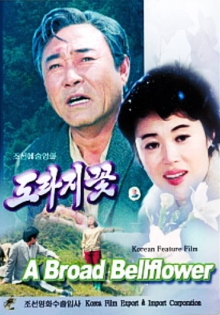 W
WA Broad Bellflower is a 1987 North Korean movie directed by Joo Kyun-soon. Kim Ryung-joo, Oh Mi-ran, and Song Yeon-ok star as lead roles within this movie. The film was screened at the Melbourne International Film Festival.
 W
WCheolindo is a 1930 Korean film written, directed by and starring Na Woon-gyu. It premiered at Dansungsa Theater in downtown Seoul.
 W
WDeuljwi is a 1927 Korean film written, directed, edited by and starring Na Woon-gyu (1902-1937). It premiered at the Danseongsa Theater in Seoul.
 W
WGaehwadang imun is a 1932 Korean film written, directed by and starring Na Woon-gyu. It premiered at Dan Sung Sa theater in downtown Seoul.
 W
WGeulimja is a 1935 Korean film directed by Na Woon-gyu. It premiered at the Woo Mi Kwan theater.
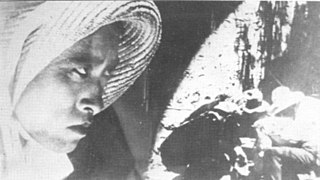 W
WGeumbungeo (금붕어) (Goldfish) is a 1927 Korean silent film. The silent, black-and-white film was directed, edited by and starred Na Woon-gyu (1902-1937).
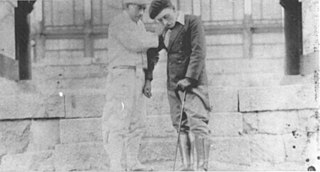 W
WGeumganghan is a 1931 Korean film written by Lee Chang-Yong. It was directed by and starred Na Woon-gyu. It premiered at Dan Sung Sa theater in downtown Seoul.
 W
WHong Kil-dong is a 1986 North Korean historical drama film directed by Kim Kil-in.
 W
WImjaeomneun narutbae is a 1932 Korean film starring Na Woon-gyu. It premiered at Dan Sung Sa theater in downtown Seoul. This was director Lee Gyu-hwan's first film. This film is significant as the last pre-liberation film that was able to present an openly nationalistic message, because of increasing governmental censorship at this time.
 W
WIncident of the 7th Bamboo Flute is a 1936 Korean film directed by and starring Na Woon-gyu. It premiered at the WooMiKwan theater.
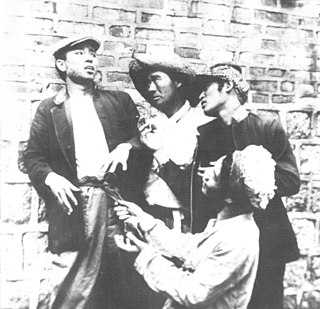 W
WJalitgeola is a 1927 Korean film. The silent, black and white film was written, directed, produced, edited by and starred Na Woon-gyu (1902-1937). This was the first film from Na's own production company, Na Woon-gyu Productions, financed by Park Seung-pil, owner of the Danseongsa theater in Seoul. The film premiered at the Danseongsa theater in November 1927.
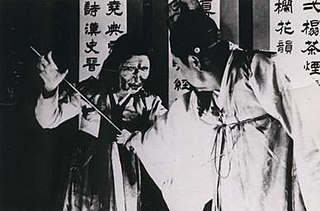 W
WStory of Janghwa and Hongryeon is a 1936 Korean silent film. The film is based on a popular Korean fairy tale "Janghwa Hongryeon jeon" which had been adapted into film versions in 1924, 1936, 1956, 1962 and 1972, 2003, and 2009.
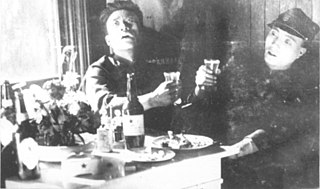 W
WJongno (종로) is a 1933 Korean film starring Na Woon-gyu. It premiered at DanSungSa theater in downtown Seoul.
 W
WKanggeonneo maeul is a 1935 Korean film directed by Na Woon-gyu. It premiered at the DanSungSa theater in downtown Seoul.
 W
WMuhwagwa is a 1935 Korean film directed by Na Woon-gyu. It premiered at the Woomikwan theater.
 W
WNation and Destiny is a 62-part North Korean film series released between 1992 and 2002. It aims to show that the Korean people "can live a glorious life only in the bosom of the Great Leader and socialist fatherland". Kim Jong-il personally chose the title and was extensively involved in the early episodes. Conceived as the largest film series ever produced in any country, it was the largest investment ever made in the history of North Korean cinema. Initially, the most senior writers, directors and actors were involved in the project and it was heavily promoted and eulogized by the North Korean media. The series was projected to reach 100 episodes, but none have been released since 2002.
 W
WNongJungJo is a 1926 Korean film. Future writing/directing/acting star Na Woon-gyu appeared in this film just before his breakthrough in Arirang (1926). Kato Kyohei served as director of photography both for this and other well-known Korean movies of the 1920s.
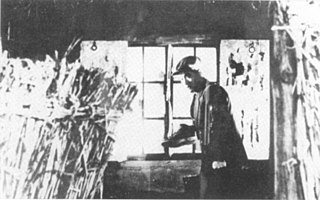 W
WOh Mong-nyeo (오몽녀) is a 1937 Korean film, the last film directed by Na Woon-gyu. It premiered at the DanSungSa theater in downtown Seoul.
 W
WOh, Youth!, also called O Youth!, is a 1995 North Korean comedy drama film directed by Jong-pal Jon and written by Ri Il Chol, which was originally titled "Chongchuniyo!". While North Korea is not typically known for releasing comedies, Oh Youth! is a rare example of a comedic film produced in the DPRK, with English subtitles, and can be viewed on YouTube. Of note is that, while mention of the late North Korean leader Kim Jong-il is a typical occurrence, the success of the characters is not attributed to him.
 W
WOur Fragrance is a 2003 North Korean film written by Ri Suk Gyong and produced and directed by Jon Jong Pal. It falls under the genre of comedy and reflects the period following the 2002 market-oriented economic reforms. Although an initial match-making attempt between Pyongho and Saebyol through their grandparents is unsuccessful, the two are brought together by fate to participate in the Pyongyang spring fashion show. Modelling both the fashion and the virtues of a wedding couple, their families convene to judge the potential unity. However, tradition versus the foreign influence seeping into society becomes the theme as misunderstandings come to create drama between the two families and the young couple.
 W
WPunguna is a 1926 Korean film. The silent, black-and-white film was written, directed, edited by and starred Na Woon-gyu (1902-1937). It premiered at the Choseon Theater in December 1926.
 W
WSalangeul chajaseo is a 1929 Korean film written, directed, produced, edited by and starring Na Woon-gyu (1902-1937). The film premiered at the Choseon Theater in April 1929. More than one thousand extras from Na's hometown Hoeryong were employed in the filming of Salangeul chajaseo, making the film into a symbolic epic national exodus as a protest against the Japanese occupation of Korea. Originally entitled Crossing the Duman River, the film was banned and censored by the Japanese occupying authorities after its first showing. Popular demand caused it to be re-released, though in a heavily edited form, and renamed In Search of Love. As with the vast majority of Korean films of this era, Salangeul chajaseo is a lost film.
 W
WThe Schoolgirl's Diary is a 2007 North Korean film directed by Jang In-hak. It debuted at the 2006 Pyongyang Film Festival as one of two films produced domestically that year, and was released in France at the end of 2007. According to Radio Free Asia, the film had been banned in North Korea in July 2016. However, on 17 April 2020 the film was broadcast in North Korean state television KCTV at 20:32 after the eight o'clock news bulletin, according to the programming guide they showed the night before for that day. Later that day, the film was archived in the state-controlled news website Uriminzokkiri, disproving the report on its banning, and the film was rebroadcast on television on 28 October 2021.
 W
WViva Freedom! is a 1946 Korean film directed by Choi In-kyu. It was the first film made in the country after achieving independence from Japan. During the colonial period, Choi was only allowed to make certain films, but the plot of Viva Freedom! is distinctly different, telling the story of a Korean patriotic resistance fighter in 1945.